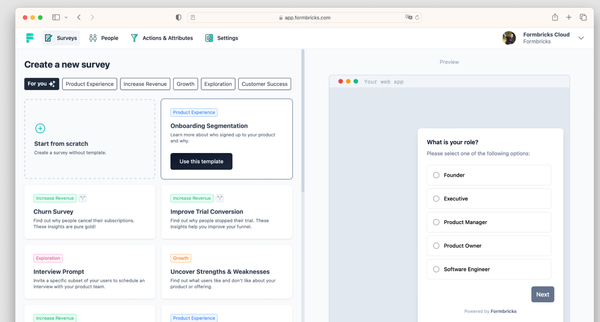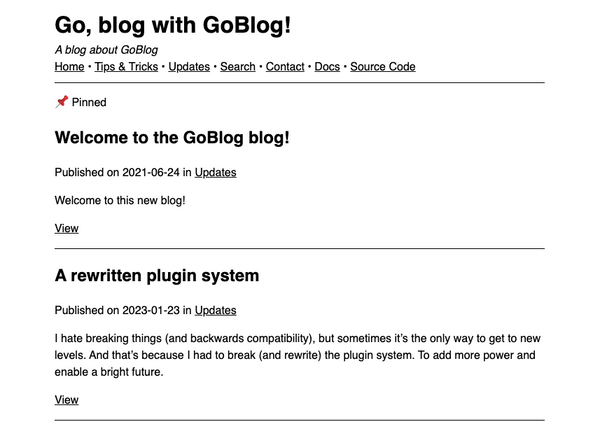Germany’s Open Source Renaissance: Pioneering Digital Sovereignty - YES Open-source in Gov Offices is a Public Interest
Why Germany's Embrace of Open Source Software Sets a Powerful Example for Digital Innovation
Table of Content
As someone who has spent over a decade working with both proprietary and open-source software, I find Germany's transition toward open-source solutions genuinely inspiring.
Moreover, The Germany's Sovereign Tech Fund has introduced the "Fellowship for Maintainers" program to financially support open-source software maintainers, aiming to enhance the security and availability of critical digital infrastructure. Applications are expected to open by the end of September, with fellowships commencing before year's end.
At Medevel.com, we have consistently championed open-source software as a robust alternative to proprietary solutions. Over the years, we’ve covered numerous open-source apps that empower users with flexibility, transparency, and cost-effectiveness.
Having closely followed their journey, I believe their approach offers valuable insights for organizations and governments worldwide.
A Personal Perspective on Germany's Open Source Evolution
What particularly impresses me about Germany's initiative is not just the scale of their ambition—transitioning 30,000 PCs from Windows to Linux is no small feat—but the thoughtful, systematic approach they've taken.
The state of Schleswig-Holstein's commitment to completing this migration by 2026 demonstrates remarkable foresight and planning.
The German Open Source Ecosystem: A Testament to Innovation
In my assessment, one of the most overlooked aspects of Germany's open-source journey is its thriving domestic software development community.
German developers have contributed significantly to the global open-source landscape. Having worked with several German-developed open-source applications, I can attest to their exceptional quality and innovation.
Some notable German open-source projects that deserve recognition include:
1- TYPO3
TYPO3, a robust content management system that powers numerous enterprise websites, emerged from the innovative German tech sector.
2- NextCloud
The development of NextCloud, a powerful alternative to proprietary cloud storage solutions, showcases German engineering excellence.
3- OpenProject
OpenProject, a comprehensive project management tool, demonstrates Germany's commitment to creating enterprise-grade open-source solutions.
And that is not all, there dozens and dozens of open-source projects that is originally generated from Germany, you can check in our following article.

Digital Infrastructure is a Public Interest
Katharina Meyer is a historian of technology and science who has led research initiatives such as the Prototype Fund and the Sovereign Tech Fund in Germany. She currently directs the Digital Infrastructure Insights Fund, a global initiative supporting research on open digital infrastructure.
In an interview, Meyer noted that open digital infrastructures are "often produced by volunteer communities and subject to market failures."
She emphasizes the collaborative nature of these infrastructures and the challenges they face due to market dynamics.
Financial Wisdom Meets Digital Sovereignty
From my professional experience, the financial benefits of open-source adoption often extend far beyond initial cost savings. Germany's approach to reducing bureaucracy costs through open-source implementation represents, in my view, a masterclass in fiscal responsibility.
The decision to establish the Free Software Fellowship Program in 2024 particularly resonates with me as it addresses one of open source's key challenges: sustainable maintenance.
A Model Worth Emulating
Having observed various digital transformation initiatives across different countries, I believe Germany's approach stands out for several reasons.
Their emphasis on digital sovereignty while maintaining a collaborative, community-driven development model creates a balanced framework that other nations could adapt to their contexts.
Looking Ahead: The Future of Open Source in Government
In my professional opinion, Germany's success with open-source adoption will likely influence government technology policies worldwide.
Their experience demonstrates that large-scale transitions to open-source solutions are not only feasible but potentially advantageous for public administration.
Personal Take
Based on my experience in software development and digital transformation, I believe Germany's open-source initiative represents more than just a cost-saving measure—it's a paradigm shift in how governments approach technology.
Their success in nurturing a domestic open-source ecosystem while maintaining high standards of security and efficiency sets a compelling example for others to follow.
"From Windows to Freedom: Germany’s Inspiring Open Source Revolution"
The German approach proves that open-source adoption can align with national interests while fostering innovation and community engagement. As we move forward, I expect their model will inspire similar initiatives worldwide, potentially reshaping how governments and organizations think about software development and digital sovereignty.
Germany's journey demonstrates that with proper planning, support for local development communities, and a clear vision, the transition to open-source solutions can yield significant benefits for both public administration and technological innovation. Their experience offers valuable lessons for any organization considering a similar transformation.
Germany’s move toward open source deeply resonates with our mission to encourage government officials and organizations worldwide to adopt similar approaches. This transition represents a forward-thinking strategy that aligns with the principles we stand for—innovation, collaboration, and digital sovereignty.
Resources
- German state gov. ditching Windows for Linux, 30K workers migrating
- German state moving 30,000 PCs to LibreOffice
- Bureaucracy costs Germany up to 146 billion euros per year, Ifo says
- Germany to Fund Open Source Software Maintainers Through New Fellowship Program
- Germany's Sovereign Tech Fund Has Invested Over $24.9M In Open-Source In Two Years
- Interview with Katharina Meyer: On the tension between public interest and profit maximisation in public interest tech












